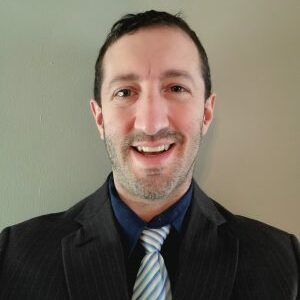Know Your Blogger Series

Check out our Q&A with Money In Your Tea here.
During these weekly features, we are hoping to provide a way for you to interact and learn more about different blogs in the personal finance space.
Below, you can read more about the story behind Money In Your Tea, learn about the author, and learn personal finance tips from Money In Your Tea to help you improve your financial situation.
A big thanks for Money In Your Tea for this interview! Now, we will turn it over to the author for this interview.
Tell us about Money In Your Tea
What makes you and your blog unique?
I’m also an economist, so I sometimes incorporate that into my articles, such as What Everyone Should Know about Economics during COVID-19.
What does “being good with your personal finances” mean to you?
- Be aware of how much money you make, especially if it’s coming from multiple sources or varies month-to-month.
- Track how much you spend in various categories, and see if this makes sense to you. If you’re spending too much in some areas, see where you can adjust, such as buying store-brand groceries instead of shopping at high-end stores.
- Only take on “bad debt” if there is a good reason, and have a plan for how you will pay it off. What I mean is, if you have lost your job and then run up your credit card in order to buy groceries, that’s a great reason for that debt. If you have no idea what you’re earning and what you’re spending and your line of credit grows every month, that’s not so good.
- Invest in your future. This can include education to further your career options, as well as putting money aside for future large purchases and for retirement.
What are some habits you practice to keep your personal finances in order?
What are three articles from Money In Your Tea that people should read to get to know you and your message better?
- The 50/30/20 Budget Rule: A Simple Step-by-Step Guide – This is my most popular article, and it is newly updated and expanded, with a free budget tracker printable.
- RESP Investing from Newborn to High School – Investing in your education fund (RESP in Canada) is very different from investing in your retirement fund. You can move your retirement date forward or backward as your finances (and preferences) allow. But post-secondary education almost always starts when your child is 18. This is why I believe it’s so important to monitor and adjust your investment strategy over the years.
- Personal Finance during the Coronavirus Pandemic – I’m kind of cheating here, because this is actually a series of articles. They range from what to do in a cash flow crisis, to understanding economics during COVID-19, to paying off debt, and more.
For someone looking to improve their financial situation, what’s your best advice?
In your opinion, what’s better? Renting a place or buying a house to live?
In your opinion, what should you do first? Pay down debt, or invest?
What are your favorite personal finance books?
My favorites are:
- Quit Like A Millionaire: No Gimmicks, Luck, Or Trust Fund Required, by Kristy Shen and Bryce Leung.
- Kristy and Bryce retired at 31 with over $1 million, and now travel the world. But even if the FIRE movement (financial independence retire early) isn’t for you, this book is still a great read. The detailed description of how they draw down their investments in retirement while still protecting themselves from stock market declines is essential.
- The 5 Years Before you Retire, by Emily Guy Birkin.
- This book covers all the important personal finance steps to take BEFORE you retire, including what to do if you haven’t saved enough. Lots of great information here, particularly with respect to American social programs and taxes. (I wish it had a Canadian version!)
- Make Your Kid a Money Genius (even if you’re not), by Beth Kobliner.
- This is the book I would most recommend to parents. She covers 10 important topics ranging from saving, earning, debt, smarter spending, college, and more. In addition, each chapter is broken down into advice by age range: preschool, elementary school, middle school, high school, college, and young adulthood. For example, in the chapter called Hard Work Pays, elementary kids learn that work isn’t always fun, while high schoolers learn how to read paycheque deductions, and advice to young adults includes how to negotiate your salary at a new job.
What are your best investing tips?
- Invest based on your goals and risk tolerance.
- You can take more risk (and hopefully get higher return) with funds that are invested with a long-term horizon. In my children’s education funds, by the end of high school I have them invested in 100% GICs (guaranteed investments certificates, equivalent to a CD in the United States). When the stock market crashed 20% in early 2020, and my son was months away from graduating, can you imagine if his education fund had fallen by that much?
- Diversification.
- Don’t put all your eggs in one basket. My own investments are mainly in ETFs (exchange traded funds) that track broad market indexes. As a Canadian, I ensure I invest internationally as well as at home.
Reduce the cost of investing./div>- When we first started investing, we had mutual funds because we didn’t know much about investing and that’s what our bank recommended. As we learned more, we switched to self-directed investing with ETFs, which have much lower management fees.
Invest regularly.- We add to our investments regularly, to ensure it grows over time. I also check our investment allocation periodically, to balance between types of investments where needed.
If you received a $5,000,000 windfall tomorrow, what would you do with the money?
I would start by hiring a fee-for-service financial advisor. $5 million is too much to manage without getting some expert advice. And I know a fee-for-service advisor isn’t going to “sell” me the wrong things to profit off me.I think both of us would retire from our careers.Then:- I would pay off my mortgage, because I find it annoying. Even though the interest rate is low, and financially this isn’t the best use of funds. I would also hire someone to do all the little renos to make our home perfect.
- I would buy a cottage. Living in a big city as we do, it would be lovely to have a place to go where we could be in nature.
- I would maximize our tax-advantaged investing accounts. Then invest more in non-registered investment accounts.
- I would set up funds in trust for our children. We live in a city where buying a house or condo is very expensive, and I worry that they may not be able to afford to live here as adults.
- We would travel (when COVID-19 is no longer an issue).
- I would give some to family.
- and, I would donate to a worthy cause.
How You can Contact Money In Your Tea for More Information
You can learn more about Money In Your Tea at https://moneyinyourtea.com/, and follow Kari on Twitter @moneyinyourtea.Thank you for reading this interview, and thank you, My Quiet FI, for providing us with some great personal finance tips!
About the Know Your Blogger Series
Each week, Personal Finance Blogs features a personal finance blogger for you to learn more about who is behind the different blogs in the personal finance space.
These interviews also provide different viewpoints and tips for improving your financial situation. Check out a couple other recent interviews below, or see them all of the past blogger features here.
It’s Not Your 9 to 5 Come read about the great personal finance blog, Have Your Dollars Make Sense.Have Your Dollars Make Sense
Come read about the great personal finance blog, Have Your Dollars Make Sense.Have Your Dollars Make Sense Come read about the great personal finance blog, Have Your Dollars Make Sense.
Come read about the great personal finance blog, Have Your Dollars Make Sense.


